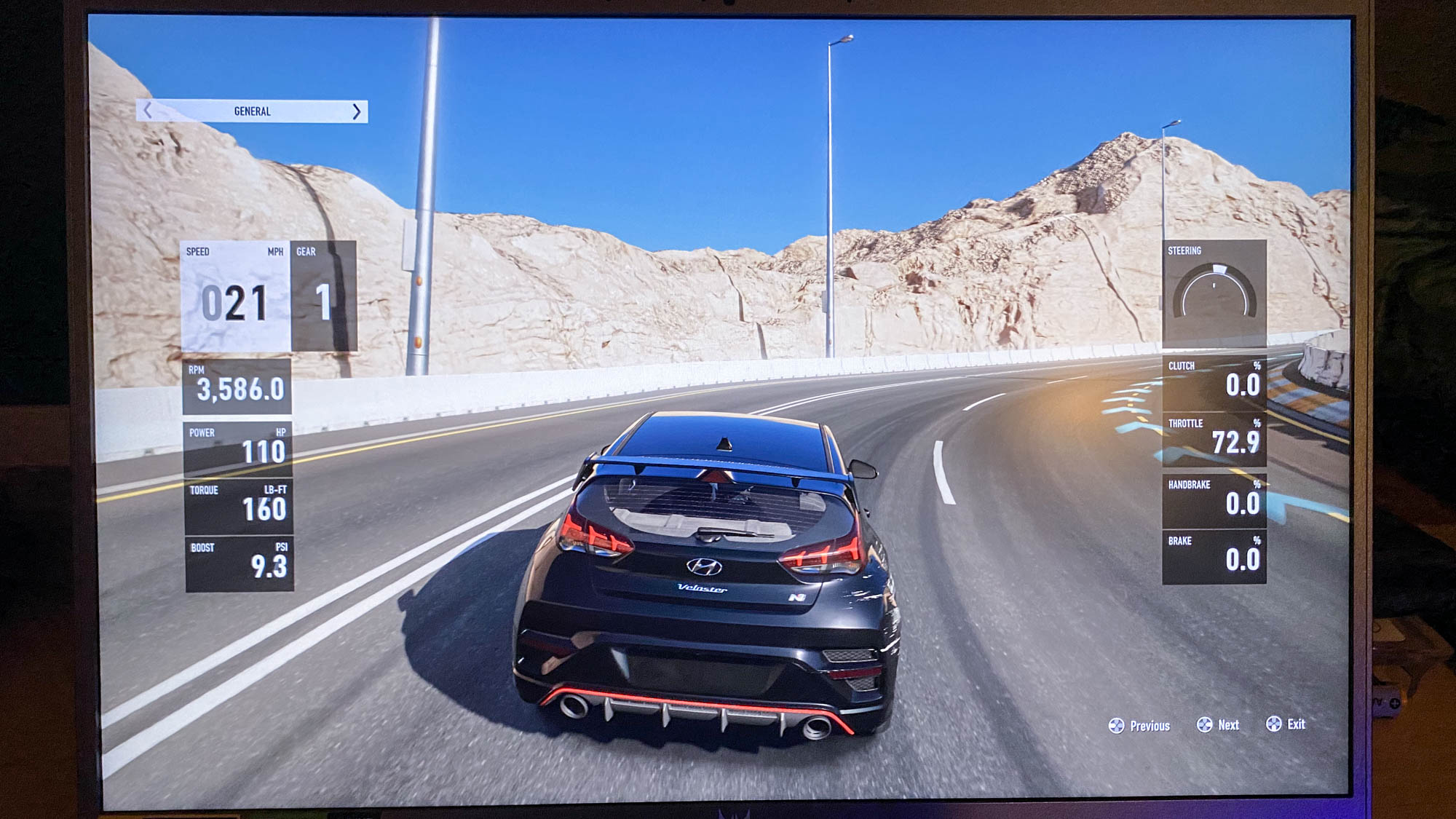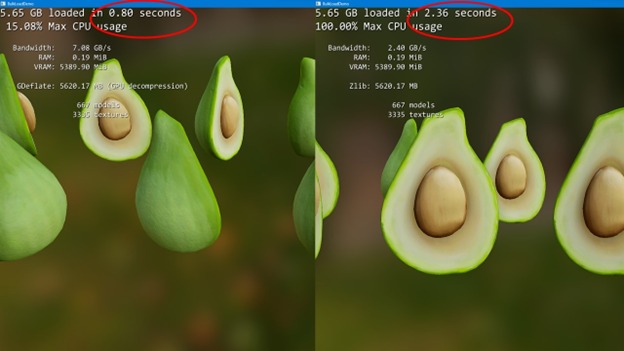Microsoft's Xbox Series X trick could make PC games load up to three times faster
DirectStorage 1.1 will make your gaming laptop work smarter, not harder

Windows 11 and Windows 10 gaming laptops will get a new performance-enhancing tool from Microsoft with support for DirectStorage 1.1 in a forthcoming update and an SDK will open it up to developers.
DirectStorage debuted in the Xbox Series X|S as a method to improve load times for games and naturally Microsoft leveraged it for Windows as well with DirectStorage 1.0 making its way first to Windows 11 and then Windows 10 in March. The original method could reduce load times in games by up to 40% on laptops or desktops with a compatible NVMe drive, but DirectStorage 1.1 ups the ante with load times up to an additional three times faster (via Windows Central).

In a DirectX Developer Blog post Microsoft showed off an optimized sample (pictured above) illustrating the potential gains of GPU decompression versus CPU decompression with the load time dropping from 2.36 seconds to just 0.8 seconds under DirectStorage 1.1.
While DirectStorage 1.0 improved the speed of the data transfer, which in turn reduced CPU overhead, DirectStorage 1.1 focuses on GPU decompression. In the past, this task was entirely on the CPU, but now it can be offloaded to the GPU and working in concert with a high-speed NVMe drive it can result in near instantaneous load times.
So what's the catch? Well other than having a gaming laptop with an NVMe drive and a DirectX 12 capable GPU with support for Shader Model 6.0 to pull this off, developers also need to implement the feature in their games. That has proven a challenge with DirectStorage 1.0 to date, so we'll have to see if this next leap is enough to bring developers on board.
Sign up to receive The Snapshot, a free special dispatch from Laptop Mag, in your inbox.
Sean Riley has been covering tech professionally for over a decade now. Most of that time was as a freelancer covering varied topics including phones, wearables, tablets, smart home devices, laptops, AR, VR, mobile payments, fintech, and more. Sean is the resident mobile expert at Laptop Mag, specializing in phones and wearables, you'll find plenty of news, reviews, how-to, and opinion pieces on these subjects from him here. But Laptop Mag has also proven a perfect fit for that broad range of interests with reviews and news on the latest laptops, VR games, and computer accessories along with coverage on everything from NFTs to cybersecurity and more.

